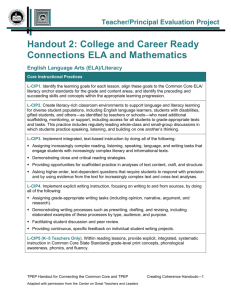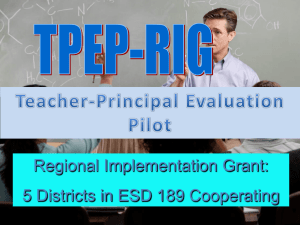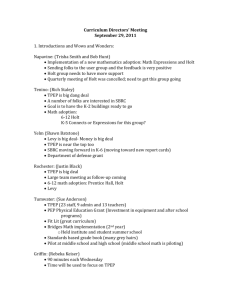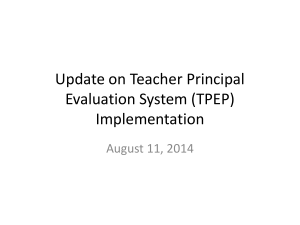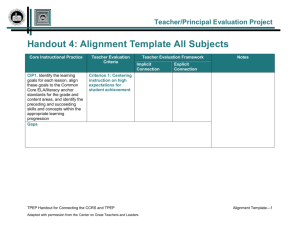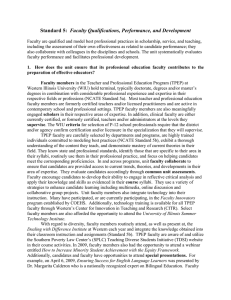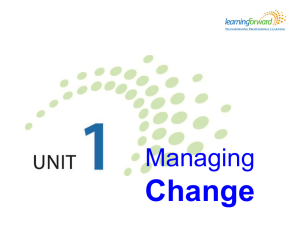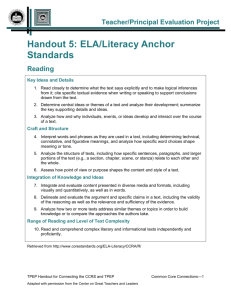Teacher and Principal
advertisement
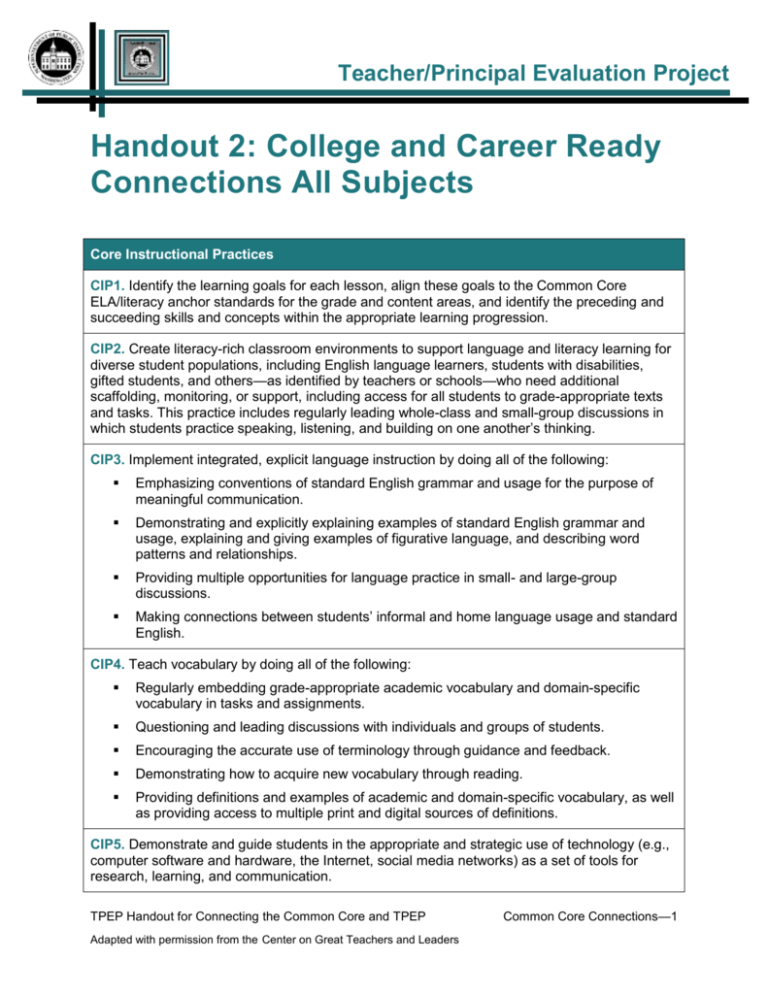
Teacher/Principal Evaluation Project Handout 2: College and Career Ready Connections All Subjects Core Instructional Practices CIP1. Identify the learning goals for each lesson, align these goals to the Common Core ELA/literacy anchor standards for the grade and content areas, and identify the preceding and succeeding skills and concepts within the appropriate learning progression. CIP2. Create literacy-rich classroom environments to support language and literacy learning for diverse student populations, including English language learners, students with disabilities, gifted students, and others—as identified by teachers or schools—who need additional scaffolding, monitoring, or support, including access for all students to grade-appropriate texts and tasks. This practice includes regularly leading whole-class and small-group discussions in which students practice speaking, listening, and building on one another’s thinking. CIP3. Implement integrated, explicit language instruction by doing all of the following: Emphasizing conventions of standard English grammar and usage for the purpose of meaningful communication. Demonstrating and explicitly explaining examples of standard English grammar and usage, explaining and giving examples of figurative language, and describing word patterns and relationships. Providing multiple opportunities for language practice in small- and large-group discussions. Making connections between students’ informal and home language usage and standard English. CIP4. Teach vocabulary by doing all of the following: Regularly embedding grade-appropriate academic vocabulary and domain-specific vocabulary in tasks and assignments. Questioning and leading discussions with individuals and groups of students. Encouraging the accurate use of terminology through guidance and feedback. Demonstrating how to acquire new vocabulary through reading. Providing definitions and examples of academic and domain-specific vocabulary, as well as providing access to multiple print and digital sources of definitions. CIP5. Demonstrate and guide students in the appropriate and strategic use of technology (e.g., computer software and hardware, the Internet, social media networks) as a set of tools for research, learning, and communication. TPEP Handout for Connecting the Common Core and TPEP Adapted with permission from the Center on Great Teachers and Leaders Common Core Connections—1 Core Instructional Practices CIP6. Select, modify, sequence, and assign tasks, activities, and problems that are aligned with the lesson’s learning goals and that promote the development of student understanding of the learning goals. CIP7. Use rich, problem-based tasks; encourage students to persevere in reaching solutions and to grapple with the tasks. CIP8. Promote reasoning and sense-making through consistent use of questions such as “Why?” “How do you know?” and “Can you explain your thinking?” Use the answers to these questions to orchestrate classroom discussions in which students explain and defend their thinking and critique the reasoning of others. CIP9. Use formative assessments to gather evidence of learning during and at the end of every lesson to monitor student learning and assess the degree to which each student met the learning goals. TPEP Handout for Connecting the CCRS and TPEP Common Core Connections—2
